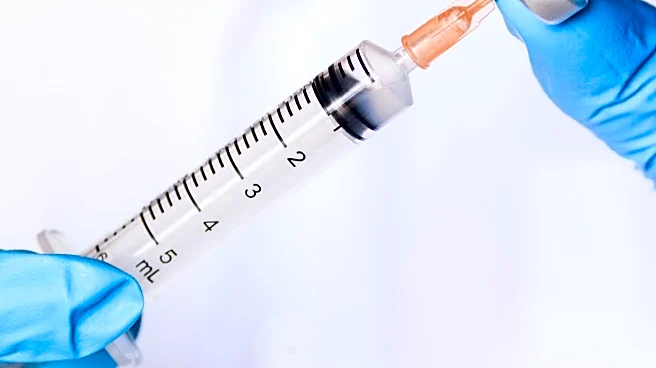What's Happening?
The National Institute for Health and Care Excellence (NICE) has approved the use of cabotegravir, an injectable form of HIV pre-exposure prophylaxis (PrEP), for individuals unable to take oral PrEP. This
decision marks a significant development in HIV prevention efforts in England and Wales. The injectable option is intended for those with medical contraindications or difficulties in adhering to oral medication regimens. The rollout is expected to begin within three months, providing a new prevention method for approximately 1,000 people annually.
Why It's Important?
The approval of injectable PrEP represents a major advancement in public health, particularly for individuals who face barriers to taking oral medication. This includes those experiencing partner violence, homelessness, or other challenges. By offering a long-acting alternative, the initiative aims to increase accessibility and equity in HIV prevention, potentially reducing new transmissions. The decision underscores the importance of adapting healthcare solutions to meet diverse patient needs, which could lead to broader implications for public health policy and resource allocation.
What's Next?
The implementation of this injectable PrEP will involve coordination with existing sexual health services, ensuring that it is administered alongside regular HIV testing and health monitoring. Stakeholders, including healthcare providers and advocacy groups, are likely to focus on ensuring equitable access and addressing any logistical challenges in the rollout. The success of this initiative could influence future healthcare strategies and the development of similar long-acting treatments for other conditions.










